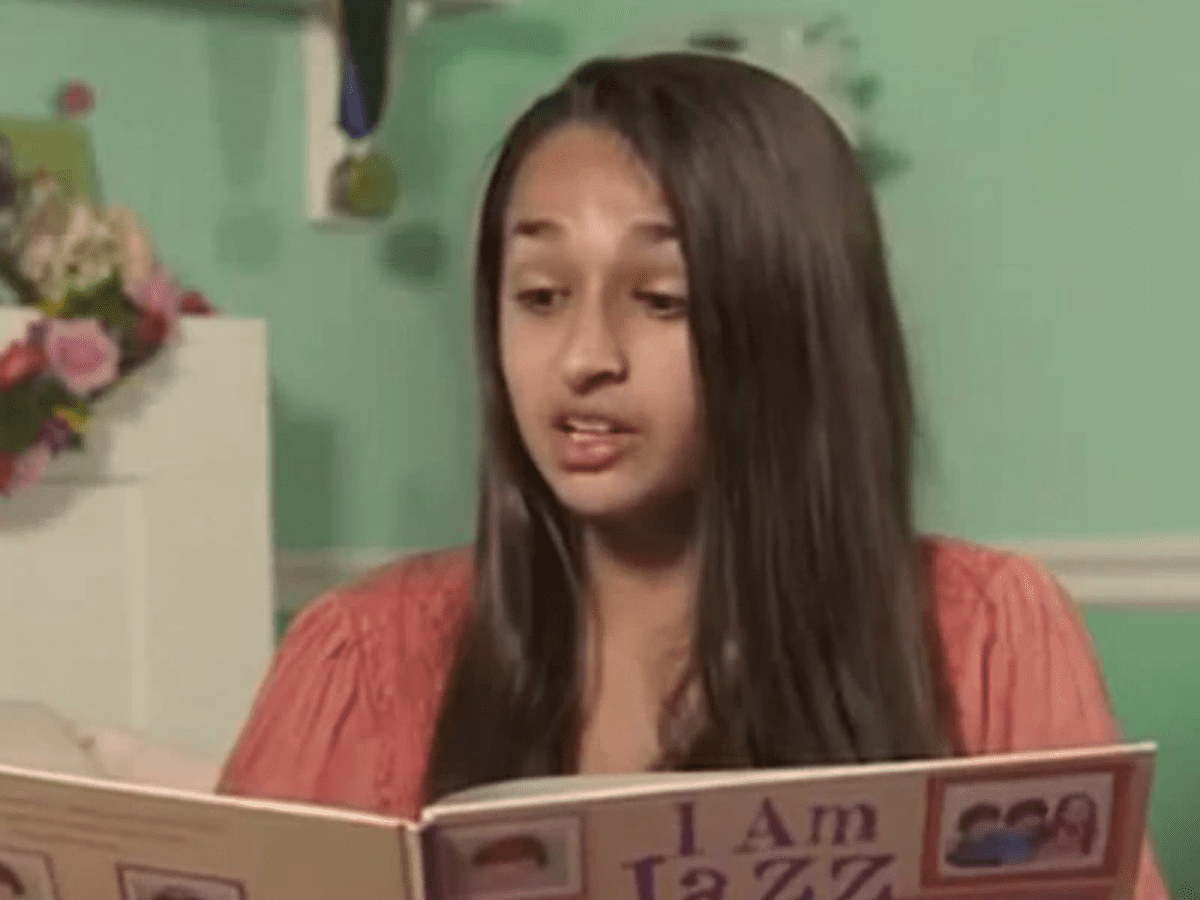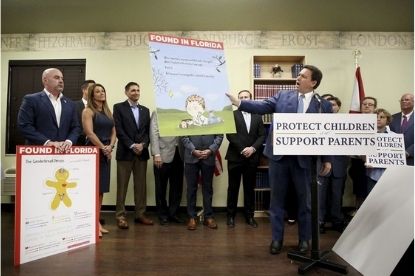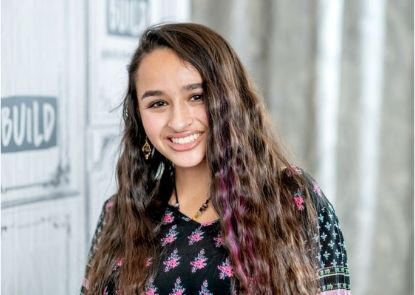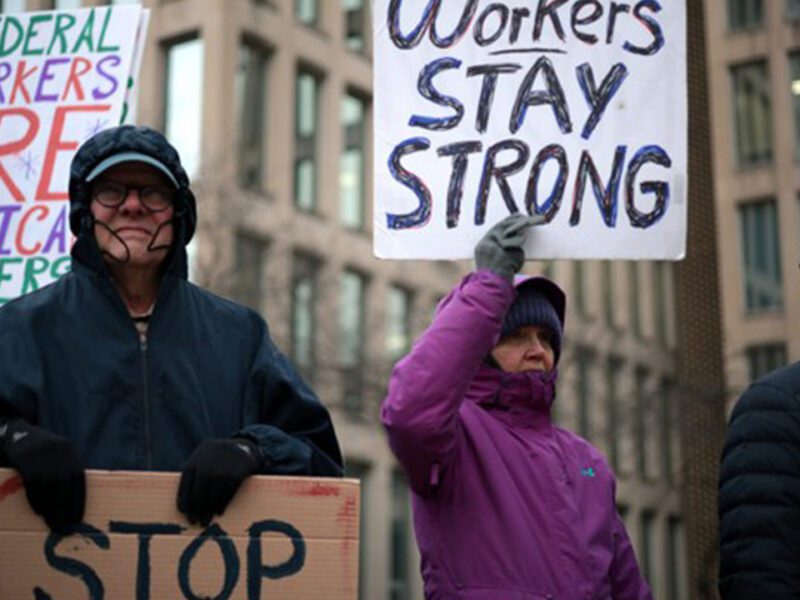
Palm Beach schools pull two books about transgender kids, including ‘I Am Jazz’
South Florida Sun Sentinel | By Lois K. Solomon and Brooke Baitinger | April 6, 2022
Two books about transgender kids, including Broward resident Jazz Jennings’ “I Am Jazz,” have been removed from Palm Beach County classrooms and libraries in response to a new Florida law.
“I Am Jazz” tells the story of a transgender child based on the experiences of Jennings, who socially transitioned in kindergarten and shares her journey through gender surgeries and societal challenges on her TLC reality series of the same name, now in its seventh season.
The second book, “Call Me Max,” explores the experience of a child raised as a girl but who feels more like a boy. In the book, Max says: “When I looked in the mirror, I saw a girl. Kind of. But because I’m transgender, I wanted to see a boy.” Max describes his journey of making friends, telling his parents he’s trans and joining a support group. Its publisher says the book is appropriate for grades 2 to 4.
“Call Me Max” was cited by Gov. Ron DeSantis at a news conference March 28, moments before he signed the Parental Rights in Education law, nicknamed “Don’t Say Gay,” which strips primary school lessons of any mention of gender or sexual orientation.

Palm Beach County Deputy Superintendent Ed Tierney wrote a memo to principals explaining that the new law has spurred the district to begin to examine the content of books.
“At this point, the District is reviewing two books that might be in either elementary classrooms or the media centers in the elementary school building: ‘Call Me Max,’ by Kyle Lukoff and ‘I am Jazz,’ by Jessica Herthel and Jazz Jennings.”
“While these books are under District review, please move them to a location where students do not have access (e.g., office in the media center, conference room, etc.). Schools will be notified once the review process is complete.”

It’s unclear how often the books were read by or to Palm Beach County students. “Call Me Max” was flagged by a parent, while a school district staffer tagged “I Am Jazz,” school board member Erica Whitfield said.
“We are doing a deep dive now into everything,” Whitfield said. “It’s a huge task because we have such a large curriculum. Our intention is to be in compliance with the law.” The law goes into effect July 1, but specific guidelines from the state’s Department of Education are not expected until June 2023.
In an email, Jennings, 21, a student at Harvard, said she was disappointed that her book has been targeted.
“Schools should be encouraged to promote a diversity of views and inclusivity rather than closing students’ minds at a young age. My book does that… instead of banning it, it should be embraced,” she wrote.
The books were not listed among the 10 Most Challenged Books released by the American Library Association this week, although the librarians found the majority of challenged books had Black or LGBTQ authors or subjects. The association, which discovered 729 challenges at libraries, schools and universities last year compared with 377 in 2019, said librarians have been facing “an unprecedented number of attempts to ban books.”
Florida’s new law specifically mentions kindergartners to third graders but affects students of all ages; a provision prevents gender instruction “in a manner that is not age-appropriate or developmentally appropriate for students in accordance with state standards.”
The law does not describe what kinds of lessons would break the law, leaving it open to interpretation. Parents are allowed to sue school districts for what they believe to be violations.
Florida school districts began removing books this year even before the new law was signed by the governor. In Polk County, school district staff pulled 16, including “I Am Jazz” and two books by Pulitzer Prize winner Toni Morrison. In Indian River County, the parent group Moms for Liberty sought the removal of 156, but the district has recommended five, among them “Gone Girl,” by Gillian Flynn.
Moms for Liberty was founded by two Florida mothers to protest COVID-19 mandates and racial equity initiatives. The group now says it has 80,000 members in 34 states and has expanded its focus to include an assertive parental voice in educational issues.
Erin Lovely, a Palm Beach Gardens mom whose son’s second-grade teacher read “Call Me Max” to his class last fall, stood on the podium with DeSantis when he signed the bill in March. She said she is not a member of Moms for Liberty but has been networking with parents who have been appalled that gender-focused books are being read to young students.
“We send our kids off to school and put our faith in adults that they’re going to teach our kids to read and write,” she said. “If a child has a question about things, that’s a family’s deal. Never should it be a teacher bringing it up in class.”
Lovely’s family moved to Palm Beach Gardens last year from Celebration, in central Florida, and before that lived in Tennessee. They chose the Palm Beach County school district’s Marsh Pointe Elementary for its excellent reputation but were quickly disappointed, she said.
The family was uncomfortable with the school’s mask and vaccine policies and angry that their son’s original teacher was switched due to school crowding. Their son told them at Thanksgiving that his new teacher had read “Call Me Max” during story time.
The family immediately had their son moved to another class and shortly after pulled him out of the school. Lovely is now home-schooling him.
“I want more control over what’s going on,” said Lovely, who has sent letters and emails to the school principal, superintendent and school board members. “This has completely shattered my trust in the public schools.”
Lukoff, author of “Call Me Max,” said he felt terrified when he saw his work was among the books targeted in Florida.
“I think the overwhelming emotion is panic, and underneath that is an awful lot of anger,” he said. “There’s the larger, more objective concerns about what this bill means for queer people. But then there’s also the very immediate sort of visceral panic upon realizing they know my name.”
Lukoff, 37, previously worked as a school librarian, and learned about book publishing that way. He said he was inspired to write his books when he noticed the lack of stories about kids who don’t feel like they fit into traditional gender roles.
“Of course I want trans kids to see it and say ‘hey, that’s like me’ and cis kids to be like ‘hey, that’s my friend’,” he said. “I want my work to contribute to the larger landscape of children’s literature.”

Best-selling Broward author Brad Meltzer said the book removals that have begun in Florida are familiar to him. He wrote children’s books “I Am Rosa Parks” and “I Am Martin Luther King, Jr.,” which the Central York School District in Pennsylvania removed from its shelves, along with more than 200 other books, in 2020.
“It was heart-breaking,” Meltzer said Wednesday. “Why are we still banning books? It seems like madness.”
Meltzer, who has also written 15 fiction and non-fiction books for adults, said the Central York district’s review of its curriculum seemed reasonable, but the lack of a timeline for a final decision created confusion among teachers and students about which books were still acceptable. He began a campaign to urge readers to buy all the books on the list and voiced objections to the ban during a school board meeting, along with students and parents.
The district withdrew the freeze in 2021, but he said he is not certain the same will happen in Florida.
“I’m so embarrassed by this,” said Meltzer, who wrote a supportive blurb for the hardcover edition of “I Am Jazz.” “They’re on the wrong side of history.”





